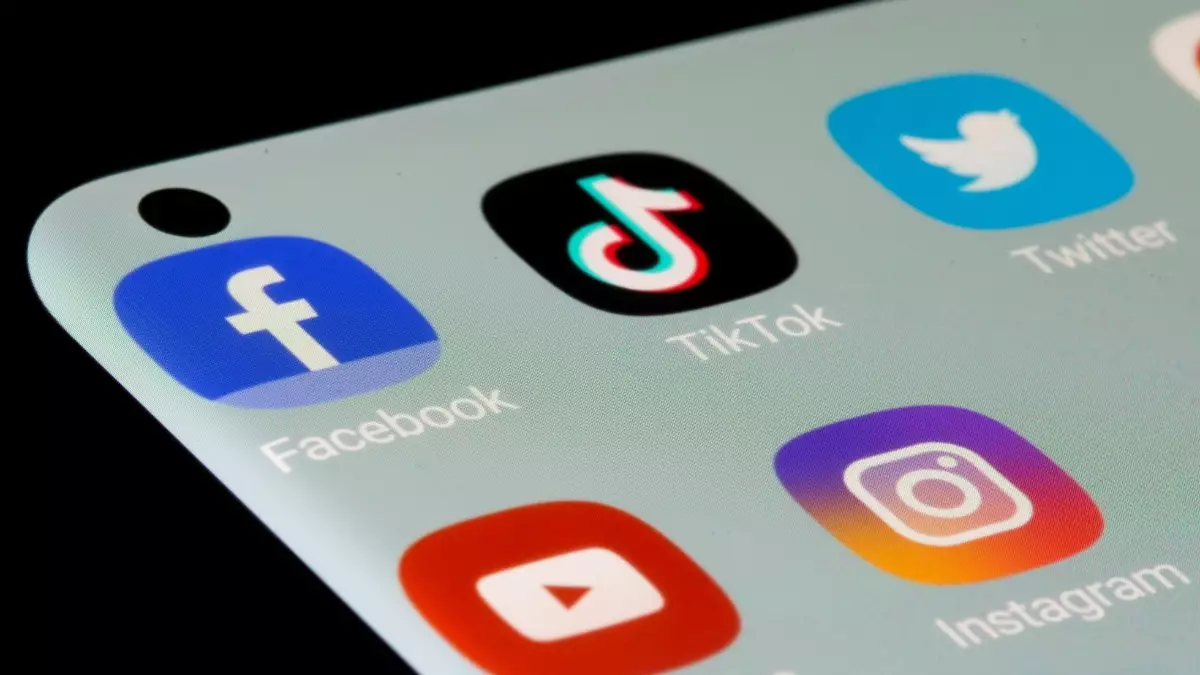Australia has recently made significant strides in regulating social media for minors by approving a ban on access for children under the age of 16. This action unfolded on a day marked by heated discussions, reflecting widespread public concern regarding the mental health impacts of social media platforms. With this decision, Australia is paving the way for stricter regulations targeting influential tech companies like Meta, TikTok, and others, thereby creating a paradigm for future legislation in various parts of the world.
The new law mandates that social media giants must prevent minors from signing up or logging in to their platforms. Failure to comply would result in hefty fines, amounting to A$49.5 million (approximately $32 million). This regulatory approach distinguishes Australia as a pioneering test case as several governments worldwide grapple with the mental health repercussions associated with unregulated social media use among youth. Countries such as France and specific states in the US have initiated similar measures but often provide avenues for parental consent, whereas Australia’s approach stands out for its absolute ban on minors under 16.
The successful passage of this legislation represents a considerable political achievement for Prime Minister Anthony Albanese’s administration, particularly as he heads towards a crowded electoral landscape in 2025. The sentiment within the Australian public seems to support this measure, with recent polls indicating that approximately 77% of citizens favor stricter age restrictions, despite opposition from some privacy advocates and child rights organizations. This substantial public backing has lent credibility to the government’s position, as evidenced by the intense media campaign led by prominent outlets like Rupert Murdoch’s News Corp.
However, the legislation’s journey has not been devoid of challenges. A parliamentary inquiry highlighted testimonies from parents whose children faced severe repercussions from social media bullying, adding an emotional layer to the discourse surrounding the bill. Supporters argue this law can provide necessary protection for children, while critics caution against overreach and the unintended ramifications of such a blanket ban.
Australia’s legislative move may also have implications for its relationship with the United States, particularly as social media companies like Twitter, now referred to as X, and Meta are primarily based there. The potential fallout was echoed in statements from Elon Musk, who criticized the Australian ban as a deceptive strategy that undermines access to the Internet. This tension is compounded by a broader atmosphere of suspicion and antagonism between Australia and American tech companies, which have been embroiled in disputes over content regulation and payment structures for shared media.
Additionally, the backlash from tech industry representatives questions the practicality of enforcing this ban without a well-established framework. Many companies are calling for the Australian government to provide clearer guidelines on age verification mechanisms, emphasizing the need for a balanced approach that respects privacy while ensuring children’s safety online.
One of the most significant critiques of the legislation focuses on its potential impact on vulnerable youth demographics. Advocacy groups warn that the ban could isolate LGBTQIA and migrant teenagers from crucial support networks available through social media platforms. The Australian Human Rights Commission has voiced concerns about the law potentially infringing on young people’s rights to engage in social discourse, further complicating the narrative surrounding the policy.
Opponents, including several youth advocates, argue that while the intention behind the legislation might be safeguarding minors, it could inadvertently close off avenues for critical communication and camaraderie that are essential for many adolescents. Michael, a representative from a youth advocacy group, has articulated the fear that isolating young people in this manner may lead to feelings of loneliness and depression.
Moreover, the legislative measures raise fundamental questions surrounding privacy and data collection. Privacy advocates express concerns that the ban may necessitate heightened data collection practices to enforce age restrictions effectively. This could pave the way for invasive digital identification systems and state surveillance, stripping young Australians of their autonomy online. A last-minute revision to the bill aimed to address these worries by allowing platforms to offer alternatives to requiring identification.
As the implementation of this ban progresses, stakeholders from various sectors are urging a collaborative approach to refine the guidelines and ensure a practical pathway forward. The discourse surrounding Australia’s social media law highlights an ongoing struggle to balance youth safety with rights and freedoms in the digital age, prompting critical questions about the responsibilities of tech companies, government entities, and society as a whole. The next twelve months will be pivotal in shaping this regulatory landscape, with both advocates and critics keeping a close eye on outcomes and practices.
Australia’s new social media ban is emblematic of a larger global discourse on technology, youth welfare, and regulatory responsibility. The balance between protection and freedom will continue to be a subject of intense scrutiny and debate as stakeholders navigate the complexities involved in safeguarding the younger generation in an increasingly digital world.

